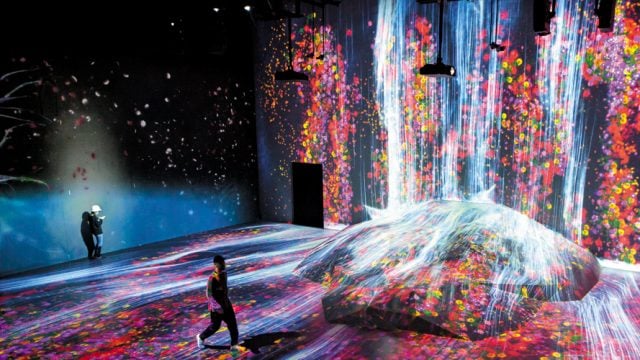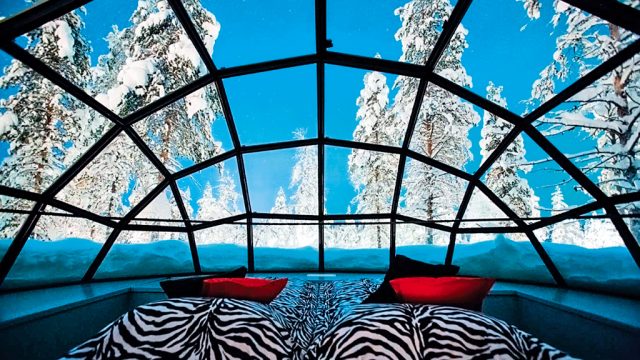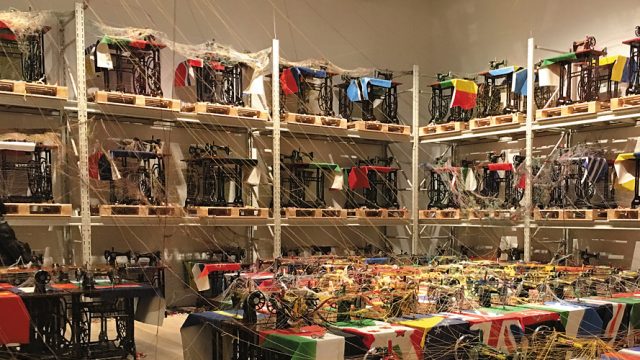Ranking third in the list of world’s most expensive cities is Tokyo Metropolis or Tokyo, the capital
- Always return a bow. Failing which is considered impolite.
- Shoes are not allowed in various public places—follow.
- After a purchase, do not count change (at least not openly).
An interesting combination of traditional and contemporary art and culture, a city well known for it’s significant history of war, dynasties and traditional gardens, Tokyo is a traveller’s delight!
How to Reach
There are two airports in Tokyo—Haneda and Narita. Air India (₹ 1,30, 855) and All Nippon Airways (ANA, ₹43,028) flies non-stop to Tokyo (Narita airport) from Delhi; ANA (₹ 80,434) from Mumbai. There are other other cheaper and connecting flights to Tokyo from other Indian metros.
Visa
One can apply for visa from New Delhi, Mumbai, Kolkata, Chennai and Bengaluru. A 90-day temporary visa can be obtained for ₹510, excluding service charge. www.vfsglobal.com/japan/india/
Things to See & Do
Tokyo is delightful (if you don’t mind a somewhat extravagant holiday, after all it IS one of the most expensive cities in the world). But if you can get past that then you will find that Tokyo has so many aspects to it—from traditional to contemporary to even imaginary!
But first, you need to know your travel options when in Tokyo. A dense and efficient network of trains, subways and buses will get you to and from anywhere in the city. It’s most convenient to get a prepaid card because they are cheaper than the day passes (they don’t cover all of Tokyo’s lines) and are helpful not only for travelling but also for shopping. The JR Yamanote Line is most prominent and favoured as it connects Tokyo’s multiple city centres. There are 13 subway lines for one to use in and around the city. Most Shinkansen lines go to Tokyo. (http://www.japan-guide.com/e/e2017.html)

A good view of the city is good to start with. Standing tall in the centre of the city is Tokyo Tower, the world’s tallest self-supported steel tower, a 13m taller replica of the Eiffel Tower. Tokyo Tower is popular as an observatory as it gives an excellent bird’s eye view of the city (Two observation decks: ¥900 for one and ¥1600 for both decks. Open from 9:00am to 11:00pm daily). If you are all right with being 333m off the ground, then this is something you’d want to try out because Tokyo Skytree at 643m is there too. Tokyo Skytree is the city’s landmark and the tallest structure in Japan. Skytree’s base consist of a shopping complex and an aquarium. Its two observation decks—Tembo Deck (at 350m) offers a 360° panoramic view, a souvenir shop and Musashi Sky Restaurant; Tembo Gallery (at 450m) is the world’s highest skywalk and has lounging areas with tall windows which makes for an impressive and dizzy viewing of the city. It is open from 8:00am to 11:pm daily. For more information, visit http://www.japan-guide.com/e/e3064.html.
Culture and History
If you are around Tokyo Tower, then do visit Zōjō-ji—a Buddhist temple from Edo period that has survived World War II. The complex consist of Tokugawa Mausoleum (open all days except Tuesdays and national holidays), museum and Unborn Children Garden. Japan’s oldest public park—Shiba Park—is perfect for day-outings and picnics.

History fans will love Tokyo Imperial Palace. This massive park-like area is located in Chiyoda ward of Tokyo and consist of the main palace, museums, private residences of the Imperial family and traditional Japanese gardens. Inner grounds of the palace is not open to public, except on December 23 (Emperor’s birthday) and January 2 (New Year greetings). For rest of the year, there are guided tours available Tuesday-Saturday from 10:00am to 1:30pm. Other sites popular in the palace grounds are Edo Castle, Kitanomaru Park and Nippon Budokan Halls. Edo Castle, also known as Chiyoda Castle, was built in 1457, and has impressive moats and garden areas.
Also perfect for a day-visit is the controversial Yasukuni Shrine. The shrine was built to commemorate all those who died during various wars Japan took part in. It is open daily from 6:00am to 6:00pm, free admission.

Sensō-ji, also known as Asakusa Kannon Temple, is an ancient Buddhist temple and dates back to year 645! It is Tokyo’s oldest and one of the most significant temples. The popular festival Sanja Matsuri takes place here for three to four days in late spring. There are shopping streets in the temple complex that sell souvenirs and eatables. The temple’s main hall is open from 6:00am to 5:00pm; temple grounds open daily and admission is free.

If you are looking for a relaxed outing, away from hordes of tourists, then Meiji Shrine is the place for you. This area is dedicated to Emperor Meiji and his wife. Thousands of trees were donated from all over Japan for this evergreen forest. People come here for its tranquil environs; walking paths make it a great place for a leisure stroll. It has an inner garden that is open from 9:00am to 4:30pm everyday for ¥500. Meiji Shrine is open daily from sunrise to sunset and is free admission.

Other Day-Activities
Odaiba, an artificial island in Tokyo Bay is a popular destination for shopping and entertainment. The island’s Decks Tokyo Beach has some great indoor theme parks, a Madam Tussauds Wax Museum and a trick art musuem. One can reach Odaiba by Yurikamome line, Rinkai line, Tokyo Water Bus (boats) and on foot—30-45mins walk across Rainbow Bridge that will also give you a spectacular view of the waterfront.

If you don’t mind a tiny assault to your olfactory senses and you are up for a unique experience, then make it early morning to Tsukiji Fish Market. It is one of the world’s largest fish markets that handles over 2000 tons of marine produce every single day and is also a venue for popular tuna auctions. This huge wholesale market for fish, fruits and vegetables is a famous tourist attraction but also because it is an active place of business, there are restrictions on the number of tourists allowed at a time. If you are keen to witness the tuna auction, apply at Osakama Fukyu Centre (on first come first serve basis). However, the outer market is slightly more relaxed and you will find great sushi and breakfast joints here.

For some family fun, Tokyo Disney Resort is perfect. Located in Chiba, this theme park and vacation resort is home to Tokyo Disneyland (seven themed parks) and Tokyo DisneySea—6th most visited theme park in the world that is also home to exciting themes like Nautical Exploration, Mediterranean Harbour, Mysterious Island, Mermaid Lagoon, Arabian Coast, Lost River Delta, Port Discovery and American Waterfront.
For some marine fun and learning, Tokyo Sea Life Park is the best place with marine life on display and a penguin exhibition. Nearby is Kasai Rinkai Park—a break from the cityscape with a number of walking trails, beaches and a bird sanctuary.
If you fancy walking around in yukata robes, plan a day for Odaiba Tokyo Oedo-Onsen Monogatari—a hot spring-themed park in Odaiba, near Tokyo Bay. Mori Art Museum and Nezu Museum are a good choice if you are interested in contemporary and pre-modern art, respectively. Art fans can also explore the National Museum of Western Art in Ueno Park Complex. It houses painting and print collections from the 18th-20th century by artists like Holbein, Rembrandt, Goya, Callot and many more.
Heard of Hachiko, the loyal dog? Yes, Japan again. There is an exhibit of Hachiko at the National Museum of Nature and Science located in Ueno Park. Also, exhibitions on pre-Meiji science to meteorite to dinosaur and giant squid, makes this museum a fun learning experience.
Traditional Japanese Gardens
Koishikawa Korakuen Garden is one of Tokyo’s oldest and best looking traditional gardens. Best time to visit is from late November to early December. You can witness pretty fall colours during this time. February-March is the plum season and the very popular cherry blossom season is March-April. Except December 29-January 3, the garden is open daily from 9:00am to 5:00pm for a fee of ¥300.
Right in the middle of the city is Hama Rikyu Gardens—former Imperial garden now a public park. Nakashima, an island sort of establishment, has a teahouse where one can enjoy a traditional tea-ceremony. the garden is open to visitors daily (expect Decembr 29-January 3) from 9:00am to 5:00pm for ¥300.

Hanami
Meaning ‘flower viewing’ in Japanese, hanami is an essential Japanese experience to be had. One of the most identified aspects of Japan is cherry blossoms. The spectacularly photogenic cherry blossoms mark the arrival of spring (early April) in Japan and is a huge attraction for tourists and locals alike. If you are there during the season, you can not miss Shinjuku Gyoen in central Tokyo with its more than one thousand cherry trees in full bloom. Because there are a lot of varieties of cherry trees, blooming time differs. So even if you miss the main season, you will still be able to witness the blossoms.

In Kitanomaru Park, the moats are lined by cherry trees which makes Chidorigafuchi one of Tokyo’s most spectacular cherry blossom sights. Similary, Sumida Park on the banks of Sumida river, Asukayama Park (one of Tokyo’s oldest and famous hanami spots), Koishikawa Korakuen (popular for weeping cherry tree varieties), Koishikawa Botanical Garden, Showa Memorial Park (biking trails are made around cherry trees) and Mount Takao (popular hiking destination and here the trees bloom couple of weeks later than central Tokyo) are some of the best hanami spots in and around Tokyo. In Ueno Park, people go for cherry blossom parties and picnics.
Popular Culture
If you are aware of words such as anime, manga, cosplay, Doraemon, Pokemon, Naruto, you have learnt so much from Japan and are probably an otaku yourself. Tokyo is a haven for anime and manga fans. From numerous themed parks to shopping districts, from eateries to museums, dedicated especially for this genre of art, Tokyo is vibrant as it comes. Akihabara in central Tokyo is famous for its many electronics shops, a place otakus love to haunt. Most popular attractions of Akihabara are its many shops selling retro videos and collectibles, Maid Cafes and cosplay-themed restaurants. Home to all things Pokemon, trading cards, stationaries, collectibles, games etc; Namja Town for Pacman fans; Sanrio Puroland for Hello Kitty fans; J-World Tokyo for Dragonball, One Piece and Naruto fans; Tokyo is any child’s (and adult) fantasy land.

Not just shopping districts, but museums too are dedicated to the fans of anime and manga. Ghibli Museum—home to characters from popular movies like My Neighbour Totoro, Princess Mononoke, Spirited Away; Suginami Animation Museum—centre of Japanese anime production, here you can take part in activities like dubbing and digital workshops; Fujiko F. Fujiyo Museum or Doraemon Museum—showcases works of the famous manga artist, the creator of Doraemon series.
Shopping & Nightlife
Tokyo city is teeming with shopping districts like any other cities, but what makes the city different is:
Kichijoji: You are keen on shopping and yet crave for some tranquil ‘later’ time? Kichijoji is where you should go then. This district has a tranquil park and yokocho alleys lined with shops that sells from clothing to eatables to souvenir. A perfect place for a wholesome shopping experience.
Shinjuku Golden Gai:Tokyo’s popular drinking den that has made a name for itself for being loyal to its regular customers. So much so that, not all of these tiny local bars accept visitors. That has also got to count as an experience, that is, walking around and trying your luck in these bars. But there are also some that do allow visitors—try Champion, Albatross and Blue Square. Shinjuku may not be visually and aesthetically pleasing, but if you want to have real unadulterated local experience, pay this drinking den a visit.
Kabukicho: Here’s the largest red-light district in Japan BUT without red-light sex workers. You will instead find plenty of ridiculously expensive host and hostess clubs, bars, dance clubs and restaurants. If you are not keen on burning your pockets, you can also simply walk around and take in the city-sights. Otherwise there are cabaret and drag shows too. Tip: this area mostly handle cash-only transactions. Before you go into any clubs or bars, make sure you have a lot of cash on you or simply ask if they have options for card payments. (http://meetrip.to/kabukicho_1.html)
Roppongi: Another place popular for its nightlife and shopping is Roppongi. Here you will find plenty of restaurants and bars too.

Where to Eat
Japan is not very big on street food culture like other Asian countries like Thailand, Vietnam and India, but it does have its share of street favourites. Look out for takoyaki (fried octopus), crepes, gyoza (fried dumplings), korokke (Japanese version of croquettes), korokke (baked fish on sticks) and yakitori (skewered chicken. For more fancy eating experience, try Ise Sueyoshi, Tapas Molecular Bar. Yamazaki near Tsukiji market is famous for its fresh sushi, one can also go for Sushizanmai, Tsukijiekimae and Sushidai. And if you really can’t leave your Indian cravings back home, you can try good Indian food at Annam Indian Restaurant and Dhaba India in Chuo, Darjeeling in Arakawa, DELHI in Bunkyo and Priya Indian Restaurant in Shibuya.
Where to Stay
There are luxury options like Sheraton Grande Tokyo (from ₹20,278), The Ritz Carlton Tokyo (from ₹39,223), Four Seasons Hotel Tokyo (from ₹34,600) among many others. For a budget stay, you can try commun SHIBUYA (from ₹2652), Tokyo Nihonbashi Bay Hotel (from ₹2947), Hotel Mystays Ueno Inaricho (from ₹4480) among others. There are many hostels available too, like bAKpAK Tokyo Hostel (from ₹2712), Tokyo Central Youth Hostel (from ₹2034), Tokyo Hostel Fuji (from ₹1768) and Wise Owl Hostels Tokyo (from ₹3878). Most hostels come free Wi-Fi.
Japan
travel
anime





